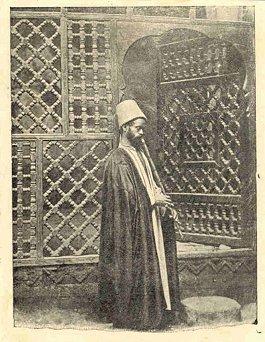Economics: Why doesn’t Islamic Economics study the more serious questions of allocation and reallocation of resources in Ummah/Muslim societies?
Why doesn’t Islamic Economics study the more serious questions of allocation and reallocation of resources in Ummah/Muslim societies?
I am still struggling to find a consistent definition of I.E. and after having talked/discussed with a number of Islamic economists, I discovered they too don’t quite have an universal definition. Anyway I guess failure by Islamic economists to hold an universal definition has resulted in the growth and direction of Islamic Economics being influenced by the champions of it. You see when any field is not properly or consistently or appropriately or concisely defined then the direction it will take will be dependent upon its champions whose values, perceptions, bias and ideals will be influencing factors. In the case of I.E. we have seen finance dudes, businessmen and politicians have been the main champions. I.E academics also have been mainly those who come from cultures where thought, ideas and information are dominated by the earlier group. Hence naturally I.E. have grown in the direction of money, finance and banking.
I find it sad to see this because if we simply take a generalized definition of I.E. which is that it’s a study on the allocation and reallocation of resources in society, then we find that in this question of allocation and reallocation of resources in any Muslim society or Ummah as whole, the greatest challenges, problems and need are not in areas of money, finance and banking. Yet the direction the best and powerful amongst the Ummah can take in analyzing allocation and reallocation of resources within our Ummah is towards those less pressing areas. It reviles me further when I realize there are such painful problems for the Ummah such as poverty, which manifests in two severe forms which have been given lesser priority by fellow Muslim leaders, scholars and academics. In the worst form of poverty, there is a good proportion of Ummah who are within the scope of poverty called “poverty without hope” where they are struggling each day for basic food, water and medicine. To them each day is a question of life and death. There is the other lesser form of poverty which afflicts an even greater proportion of the Ummah, where those within this fold of poverty do not have jobs, ability to go to school, roof over their heads, clean drinking water, basic sanitation etc. There is such great enthusiasm in erecting institutions and organizations to study and carry out allocations and reallocations of resources in the areas of “Islamic” finance and banking. But where are the institutions to address the allocations and reallocations of resources in the areas of poverty and economic deprivation.
A shameful proportion of the Ummah still does not have a roof over their head. With housing being not universal for the Ummah why are politicians, businessmen and academics only concerned about housing for the affluent such as Riba free mortgages etc? Where is the egalitarianism that Islam is all about in the practice of Islamic finance in the housing market? Why isn’t there decent efforts being employed to devise solutions within Islamic finance to improve house ownership rates amongst the less privileged?
Much of the Muslim world remains without decent public transportation systems. Why isn’t there decent efforts being employed to devise solutions within Islamic finance to address the problem of universal basic transportation whereas every effort is not spared to address the problem of automobile car ownership for the affluent ones?
It is so disgusting to see the discourse, study and implementation of Islamic Economics being focused along the marginal and not the social or ummah which is even more wider than the social. The evolution of Muslim societies till the fall of the Ottoman caliphate simply worked in the opposite direction building on the social and Ummah and not on the marginal like the post Caliphate, post Independence Muslim societies. Perhaps this may explain the failures of the Ummah where it remains to see any form of barakah(blessings) not even equivalent to proportions in fractions that Muslim societies till fall of Ottoman caliphate reaped.

1 Comments:
well some Islamic movements not only define Islamic government in accordance to a Marxist dictatorship ideal but also socialist, communist ideals. that arises from the misunderstanding of equality, distribution of income and ownership of capital and land. Islamic principles differ from Marx's on these.
Egalitarianism in generally understood in Islam in two main forms. Firstly it refers to the absence of gross inequalities. The former group mentioned above tend to think egalitarian as being perfectly equal. and i believe you also thought i subscribed to that.
Secondly Islam recognizes our overall combined rizq (explicit and implicit) are equal for each human being. we are created equal, but with diversity. What is equal and what is not? Well the explicit rizq is unequal and Islam tries to achive the above definition of eglitarianism which is absence of gross inequalities. Islam does it through redistribution using mechanisms such as zakat. The implicit/imputed rizq is also unequal. This Islam teaches us how to work on this. However as iterated earlier, Islam recognizes the overall rizq (imputed and explicit combined) for each human being is equal.
In traditional Islamic societies all across the world since days of Prophet(pbuh) till end of Ottoman caliphate there were constant efforts, generally, to seek egalitarianism in ownership of factors of production/resources through implementing policies that will prevent gross inequalities of income, basic neccessities etc.
that is why Prophet(pbuh) never imposed perfect equality in income etc. nor did his sahabas. nor did those who came after them following their ways.
Post a Comment
<< Home